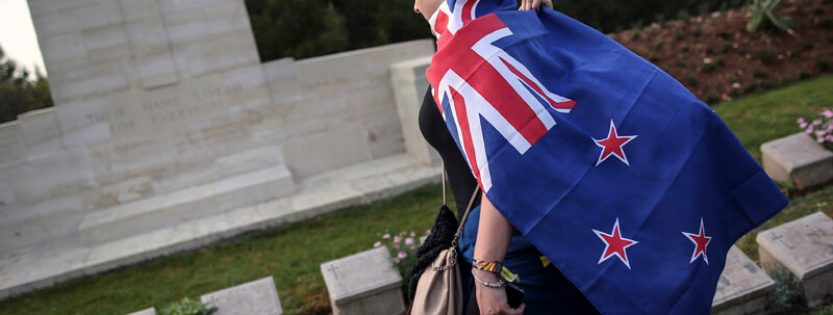Reasons of 1915 Gallipoli Wars
The Gallipoli War was the sea and land battle between the Ottoman Empire and the Entente Powers in the Gallipoli Peninsula between 1915 and 1916 during World War I. Entente States; They entered the Dardanelles Straits as their first target with the aim of taking control of the straits of Istanbul and the Dardanelles, taking a position as the capital of the Ottoman Empire, taking control of the straits of the Dardanelles, establishing a safe agricultural and military trade route with Russia, undermining one of the German allies and undermining the Allied Powers. But the attacks failed and were forced to retreat. Both sides suffered very heavy losses after the war.
Reasons
On 2 August 1914, the Ottoman Empire signed a treaty with the German Empire to take part in the Alliance States. However, this treaty was kept secret because war preparations had not yet begun. The Ottoman Empire began preparations for mobilization right after this treaty. At the same time, the Ottoman Empire declared its “armed neutrality”.
The German Goeben battle ship drawn in front of the Royal Navy in the Mediterranean and the Admiral Yukon commanding the Breslau heavy cruiser had passed through the Dardanelles and passed to the Dardanelles and caused a great tension because the Ottoman Empire had to keep the Straits closed to all war ships under the Straits Treaty. Allowing passage of these vessels belonging to the German Navy from the Bosphorus would be considered a war cause. However, the Ottoman Empire postponed the tension by explaining that these vessels were bought from Germany. The mentioned gems joined the Ottoman Navy on 16 August 1914 under the names of Yavuz and Midilli. The German crew on these ships continued their duty on the ships by wearing officers and at uniforms belonging to the Ottoman Navy, while Admiral Souchon was brought to the Ottoman Navy Command. Thus, in the near future, Germany will be using its two major weapons against the Russian ports in the Mediterranean Sea, near the Black Sea. These weapons would be used in October 1914 to shoot both Russian ports and bring the Ottoman Empire to an end and bring it into battle.
At the Western Front, in late September 1914, from the standpoint of the German armies, it was understood that the war would not be over shortly. The German war plan (Schlieffen Plan), however, was based on the fact that in the first step the French-British forces were defeated shortly on the Western Front, and in the second step, all forces were shifted to the East, leaving Russia out of war. Following this deviation from the Schlieffen Plan, Germany sought to first eliminate Russia from the war, to reload the Western Front with the forces liberated in the East. The attacks of the 3rd Ottoman Army in the Caucasus region in early November 1914 were one of the preparatory stages of this plan.
The following developments
These developments within Europe forced Britain and France to support Russia, its allies. In fact, Russia was unable to exert a strong enough pressure on Germany. Due to its limited industrial capacity, it needed British and French support. There are four possible ways for France and the UK to support this: Two of the northern transport lines are impossible. The North Sea Sea is frozen in much of the year, which makes it impossible for sea transport, while the Baltic Sea is under the control of the German Navy. The European road, which is the middle way, is under German control. The fourth possible route is the maritime path created by the straits of Çanakkale and Istanbul under the control of the Ottoman Empire.
In the very recent past, the military power of the Ottoman Empire, which had been heavily defeated in the Balkan War, the Battle of Tripoli and the Sarikamis Operation, is already considered insufficient by the Entente States. The elderly Ottoman, seen as a “sick man” in Europeans, is thought to be unable to take an attack in the Straits. If the Straits can be controlled under military control, Russia can be supported. In fact, in early November, Russia demanded an all-out assault on the Dardanelles from its allies. Thus, the pressure of the Ottoman army in the Caucasus will be eased. On the other hand, if Russia is to continue the resistance, there is not much opportunity for Germany to launch a new offensive on the Western Front. This has led in particular to the questioning of whether the British High Command was holding some of the forces on the Western Front here. Also, the British Navy is not being used effectively enough. Thus, with the cooperation of the delegation, a number of forces to be taken from the Western Front have begun to be sought in order to take a more effective and consequent action. As a result, an operation plan for the Straits began to be discussed.
The conclusion of the connection with Russia with the control of the Straits inevitably requires the occupation of Istanbul, the capital of the Ottoman Empire. The two are the results that will happen at the same time. Other strategic consequences of the occupation of Istanbul passing through the Dardanelles Strait in terms of Entente States are as follows.
With the Ottoman Empire being out of war, Germany would have lost an ally at the beginning of the war.
The Suez Canal, which is at the height of the Ottoman Empire, and thus the security of the UK’s Far East transport route will be ensured.

Leave a Comment